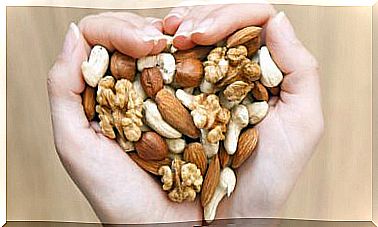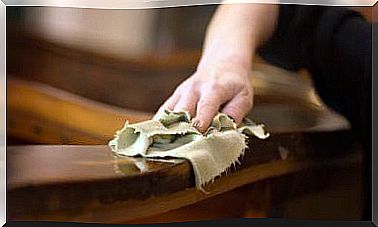Why Do We Sneeze? Can It Be Prevented?
An action as common as sneezing continues to be an enigma for many, around which there are various myths that it is better to disprove
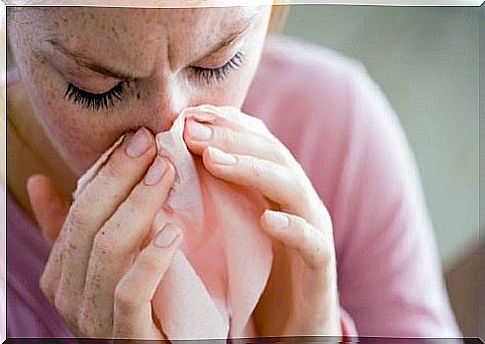
There is no person in the world who does not sneeze. Some animals, like mammals, do too. But why do we sneeze? Can it be prevented? What happens in our body when we sneeze? Answer these questions and learn fun facts about sneezing in the following article.
What is sneezing? Why do we sneeze?
A sneeze is a spasm that occurs for various reasons, from sun exposure to smelling something very strong, through a cold or sexual arousal. That tickling sensation in the nose that cannot be suppressed by anything in the world always ends in sneezing.
Despite being very common, science still does not know why we sneeze. Although they do have some ideas about it. The first hypothesis is that it is a reflex action but, at the same time, it can have conscious control and we could even repress it.
The sneeze reflex consists of two phases :
- The first is called spasmodic inspiratory.
- And the second is called expiratory, both nasal and oral.
The consequence of this mechanism is the expulsion of air and saliva (also viruses, germs and bacteria) at a speed that ranges between 70 and 130 km / h. The particles can reach up to 8 meters.
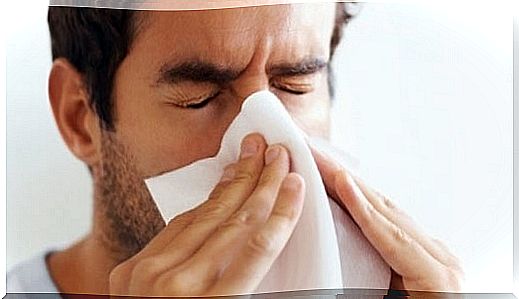
Sneezing is generally induced by an external agent, such as inhaling dust or perfume. Although there are also other causes a little more curious. It is known that 25% of the population sneezes when exposed to the sun directly.
Do you know what this is called? “The Achoo syndrome”. Do not laugh. There is a logical explanation to this name, in English: It is the “Autosomal Cholinergic Helio Ophtalmologic Outburst”. A bit complicated to read and write. More or less means in Spanish “Autosomal dominant compulsive heliophthalmic sneezing syndrome” (in our language it has not been simplified much, right?).
What you have to know about this Achoo syndrome is that it is hereditary. It can affect many members of the family and is characterized by sneezing several times as soon as you have contact with sunlight or a very bright light on any surface but, above all, in the snow and at sea.
Why do we sneeze? Other reasons may be: after eating (having a full stomach), before sexual intercourse (related to arousal) and after the intimate act.
Curiosities about sneezing
When someone sneezes, those around them say “Jesus” or “Cheers,” depending on the country and tradition. This is because in the 6th century Pope Gregory ordered to say “May God give you health” every time someone sneezed. At that time there was a great plague epidemic. In Spain, after an epidemic in 1881, they used to say “God, Jesus, Mary and Joseph help you.” At present we have abbreviated to “Health” and “Jesus”.
Sneezing originates when the respiratory epithelium (the layer of cells that lines the nose) becomes irritated, giving the order to the brain to initiate its reflex action to expel that substance that is entering the body.
We can sneeze two to three times (or maybe more). It is common to think that, by doing it three times in a row, we will receive a present or a surprise; another more convenient tradition.
Why do we always close our eyes when we sneeze?
The explanation is simple. As sneezing is a reflex act of protection, the body is protecting us from infections or contagions that we could receive if we expel the air with our eyes open. In addition, if part of the air that comes out of our nose and mouth “escapes” towards the eye globules, irreversible damage could be caused. Nature is more than wise, don’t you think?
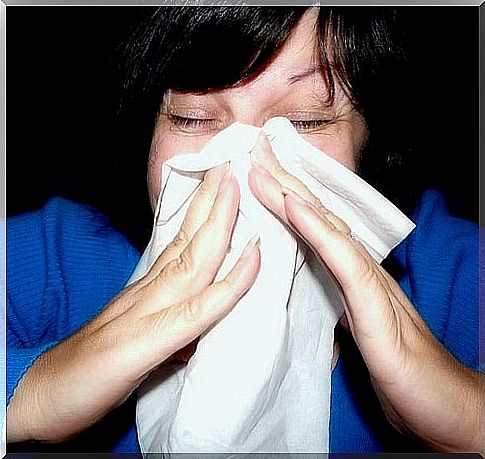
Some believe a myth about sneezing that is worth saying is false: the heart does not stop when we are having nasal spasms. Yes, changes in blood pressure can occur, but it does not stop pumping throughout the body.
But the answer to why we sneeze is not directed only at humans, but animals also sneeze. Do you know which is the species that does it the most? The iguanas! Second, there are the lizards. This is so because they need to expel the excess salt that accumulates in their nasal glands.
Is it possible to avoid sneezing?
The answer is yes. But, be careful, preventing a sneeze from coming out can have bad consequences. There is a distinction: it is one thing to suppress the sneeze when it is still a desire (when the tickle in the nose begins) and it is quite another to prevent it when it is already evident. In the latter case, it is best to allow it.
If we do not let the already formed sneeze come out, we could cause: damage to the nasal membranes, rupture of blood vessels in the eyes, perforation of the eardrums, injuries to the inner part of the ear, increased blood pressure and weakening of the blood vessels of the brain.
Likewise, there are some techniques that are not bad for your health and that help you prevent sneezing before it is imminent:
- Pinch the nose.
- Blow with your nose.
- Pinch your upper lip.
- Press the front teeth with the tongue.
- Lower your head and stick your tongue out.
- Tickle the roof of your mouth with your tongue.
- Pinch your hands.
- Press between the two eyes.
- Slightly press the ears.
- Grit and show your teeth.
